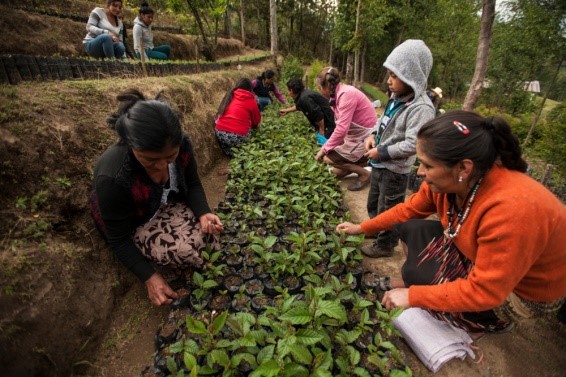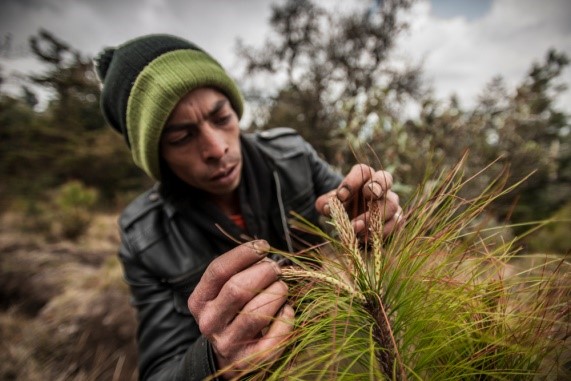


To strengthen governance, improvements needed to be made in the participation of government and local stakeholders in the management of the micro-basin.
At the local level, the organizational base of the communities was reinforced, through community leaders and their understanding of the importance of water recharge areas. It was further supported by the Communal Forestry Nursery Commissions, generally administered by women; and the Community Development Councils, which were more strongly integrated into the Esquichá River Micro-basin Council. Thus, participation was catalyzed from the bottom up, notably with youth also participating, especially in reforestation events that entailed >1000 people.
The role of the state also increased through dialogues and agreements with municipalities, and access by communities to forest incentives. The greatest added value was a local empowerment achieved by social mobilization (including women), "action learning" (process that involves the implementation of EbA activities, coupled with a practical capacity building program), organizational capacity, community and micro-basin governance processes. What has been achieved is a reflection of a strong community commitment thanks to participatory governance.
- Climate change related impacts, and in particular the availability of water, are factors of concern to most micro-watershed stakeholders. This awareness increases their willingness to participate in dialogue processes, constant learning, the search for solutions and joint actions. In Esquichá, extreme weather events in previous years had strongly impacted several communities, causing damage to both assets (e.g. crops, housing, productive infrastructure) and water resources.
- The Esquichá River Micro-basin Council brings together: municipalities, COCODEs (Community development councils), Communal Forestry Nursery Commissions and municipalities representatives. Pledging to strengthen these communal structures was highly effective, given that the greater organizational capacity and female leadership in the communities helped to consolidate the governance of the Micro-basin Council.
- The empowerment of women benefits the management of natural resources and the social cohesion of communities. In the arena of the Communal Forestry Nurseries Commissions, women felt they had much to contribute and having taken ownership of these spaces, their confidence to take part in other structures increased as well.
- Women learnt that they can take action, and are key actors in promoting forest restoration for water recharge. They learnt that collective action and leadership is needed for restoration scale actions.